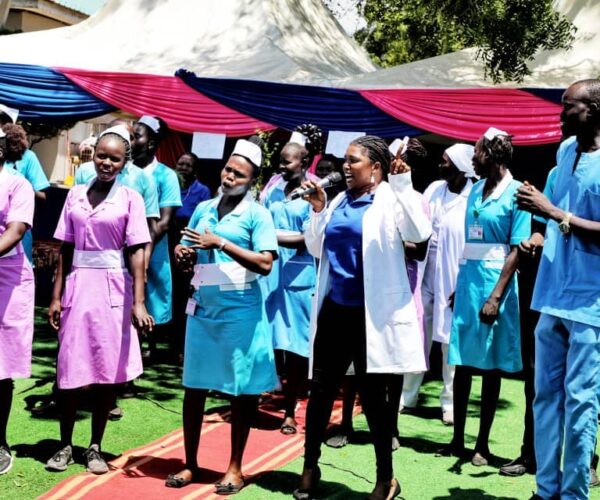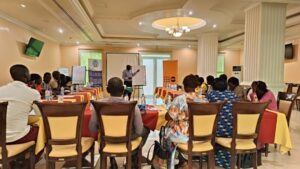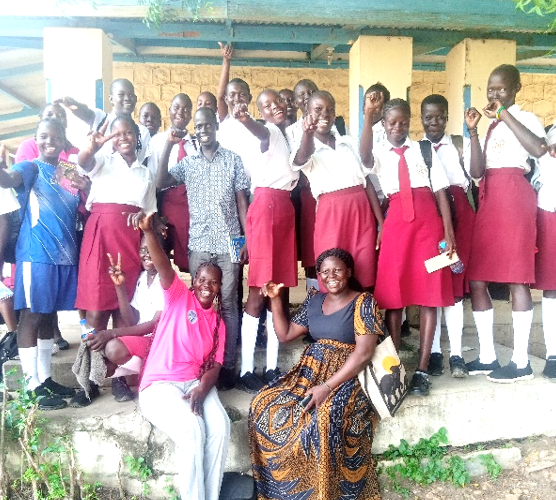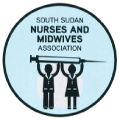
IDN and IDM Celebration 2024



A Journey of Empowerment for Nurses and Midwives

The Language of Compassion: A Journey of Empowerment for Nurses and Midwives in Juba
In the heart of Juba, where challenges often outweigh opportunities, a quiet revolution is taking place—a revolution of compassion, understanding, and inclusion. At the Panorama Portico Hotel, a group of 16 dedicated nurses and midwives gathered for a five-day journey that would forever change how they interact with their patients and, indeed, the world around them. This was no ordinary training. Organized by the South Sudan Nurses and Midwives Association (SSNAMA), in partnership with UNFPA, this five-day sign language training for nurses and midwives was aimed at bridging the gap that too often leaves people in silence. It was about learning to speak a language that is not spoken with the voice but with the heart—the language of sign. The main objective was to promote disability inclusion and improve communication with patients with hearing impairments. The training was facilitated by experts from Humanity and Inclusion. A total of 16 (4M:12 F) nurses and midwives were trained.
The experts from Humanity and Inclusion did more than just teach basic sign language skills; they opened a window into the lives of those who navigate the world without sound. Participants learned not just how to communicate through sign but also about the rich history of sign language, the barriers faced by people with disabilities, and the urgent need for inclusion in healthcare.The training delved into common terminologies, greetings, grammar, alphabets, and action words, but its true impact went beyond these basics. The sessions fostered an understanding that communication is more than words; it is about connection, empathy, and ensuring that no one is left behind. The participants learned to see their patients not as problems to be solved but as individuals with unique needs and strengths.
One of the most powerful moments came when the group discussed the importance of using positive terminologies to reduce stigmatization. They realized that language—whether spoken or signed—has the power to either alienate or embrace. From that moment, these healthcare professionals committed themselves to being agents of change, ensuring that their practice would be inclusive, respectful, and empowering. Among the participants was Amina, a midwife who has spent years bringing life into the world. For her, this training was transformative. “I always believed I was doing my best for my patients,” she reflected, “but now I see how many voices I couldn’t hear. This training has given me new ears—ears that listen to the silence and understand the unspoken needs of those who have been voiceless for too long.”
As the training concluded, the participants left not just with new skills but with a renewed sense of purpose. They had become advocates for a more inclusive healthcare system in South Sudan, where every patient, regardless of their abilities, is treated with dignity and respect. The journey doesn’t end here. A follow-up program is already in the works to ensure that these new skills are practiced and that the spirit of inclusion continues to grow. The ripple effect of this training is expected to reach far beyond the walls of the Panorama Portico Hotel, touching lives and transforming healthcare practices across the region. In a country where the challenges are many, this training represents a beacon of hope. It is a reminder that change is possible when people come together with a shared vision of a better, more inclusive world. For the nurses and midwives who took part, it was not just a training session—it was the beginning of a journey towards creating a future where no one is left behind.

THE CAREER GUIDANCE AT JUBA GIRLS SECONDARY SCHOOL
Students from Juba Girls actively participated during the session and recommended if the team from SSNAMA can continue coming to their school every month.to give them lesson on SRH .After the program was completed the head teacher appreciated the facilitators and recommended if the program can be conducted on a regular basis because of its reinforcement value
